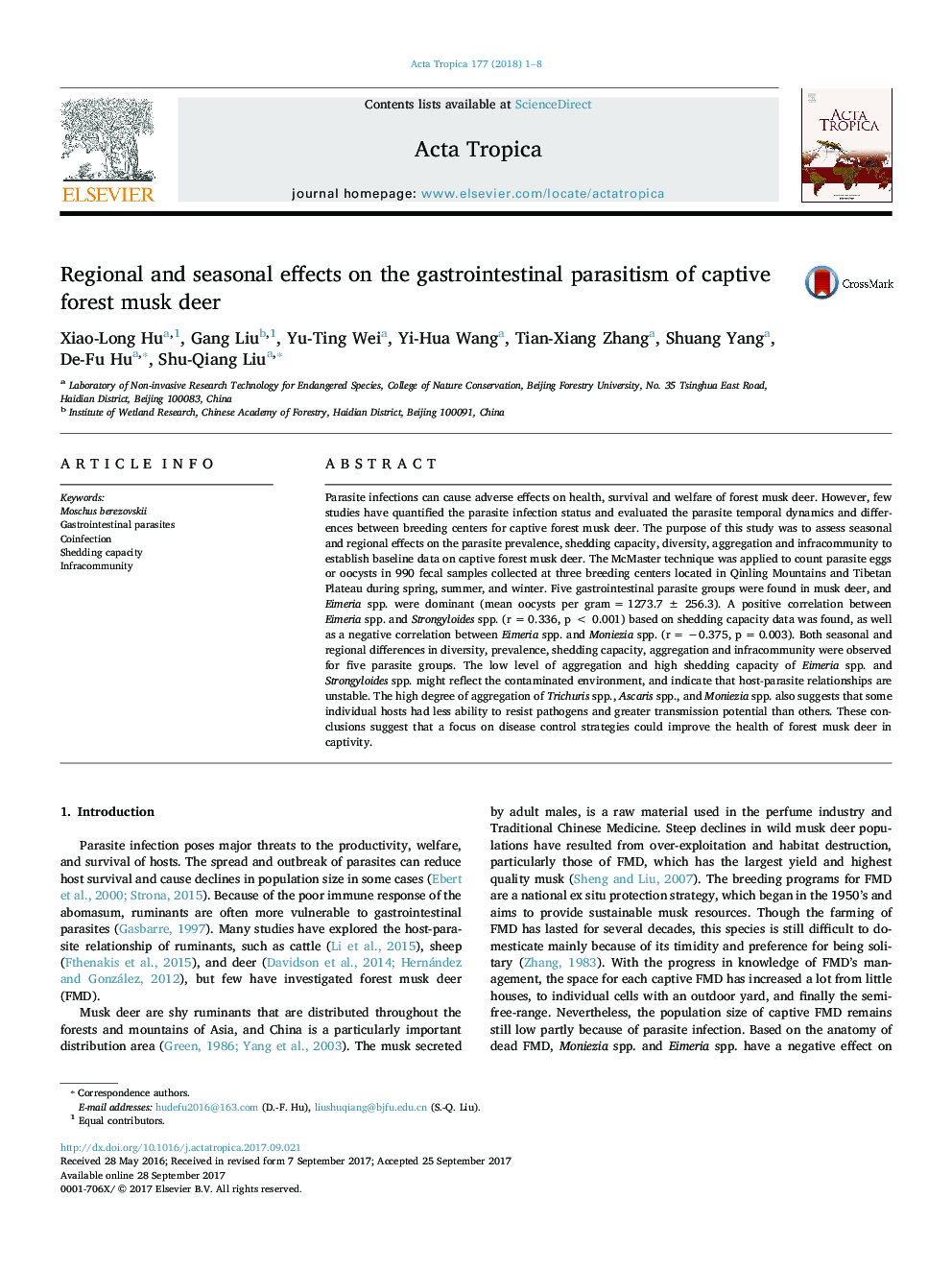| کد مقاله | کد نشریه | سال انتشار | مقاله انگلیسی | نسخه تمام متن |
|---|---|---|---|---|
| 5670975 | 1592747 | 2018 | 8 صفحه PDF | دانلود رایگان |
- Eimeria was the dominant parasite group identified in captive forest musk deer.
- Region and season have significant effects on five measures of parasitism.
- Eimeria and Strongyloides showed low aggregation and high shedding capacity.
- Infection of Strongyloides spp. and Moniezia spp. may be affected by Eimeria spp.
Parasite infections can cause adverse effects on health, survival and welfare of forest musk deer. However, few studies have quantified the parasite infection status and evaluated the parasite temporal dynamics and differences between breeding centers for captive forest musk deer. The purpose of this study was to assess seasonal and regional effects on the parasite prevalence, shedding capacity, diversity, aggregation and infracommunity to establish baseline data on captive forest musk deer. The McMaster technique was applied to count parasite eggs or oocysts in 990 fecal samples collected at three breeding centers located in Qinling Mountains and Tibetan Plateau during spring, summer, and winter. Five gastrointestinal parasite groups were found in musk deer, and Eimeria spp. were dominant (mean oocysts per gram = 1273.7 ± 256.3). A positive correlation between Eimeria spp. and Strongyloides spp. (r = 0.336, p < 0.001) based on shedding capacity data was found, as well as a negative correlation between Eimeria spp. and Moniezia spp. (r = â0.375, p = 0.003). Both seasonal and regional differences in diversity, prevalence, shedding capacity, aggregation and infracommunity were observed for five parasite groups. The low level of aggregation and high shedding capacity of Eimeria spp. and Strongyloides spp. might reflect the contaminated environment, and indicate that host-parasite relationships are unstable. The high degree of aggregation of Trichuris spp., Ascaris spp., and Moniezia spp. also suggests that some individual hosts had less ability to resist pathogens and greater transmission potential than others. These conclusions suggest that a focus on disease control strategies could improve the health of forest musk deer in captivity.
Summary: regional and seasonal effects on parasite diversity, prevalence, shedding capacity, aggregation and infracommunity.93
Journal: Acta Tropica - Volume 177, January 2018, Pages 1-8
